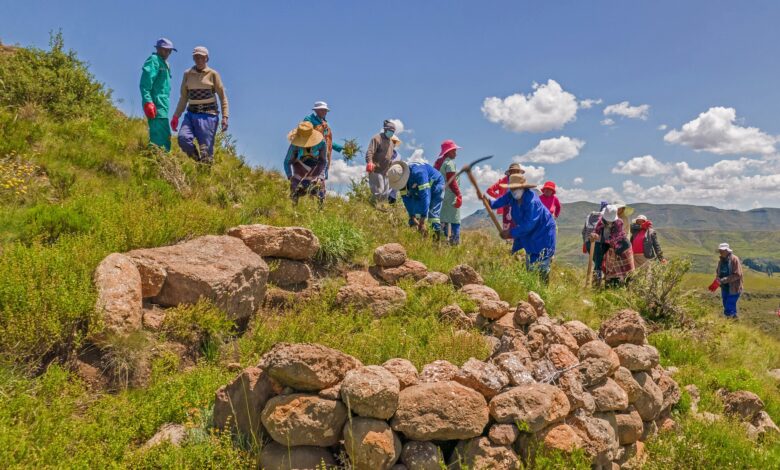Lisolane Community in Pitseng Honoured for Environmental Efforts Through ROLL Project

The Lisolane community in Pitseng, Leribe has been recognized for its outstanding voluntary work in environmental conservation, receiving financial appreciation from the Regeneration of Livelihoods and Landscapes (ROLL) Project. The award celebrates the community’s commitment to clearing invasive shrubs from local rangelands—an effort that has not only restored degraded land but also strengthened community collaboration.
The initiative, led by local volunteers, was aimed at rehabilitating communal rangelands overrun by invasive species that reduce the land’s productivity and threaten biodiversity. Through months of coordinated efforts, Lisolane residents came together to manually remove the invasive shrubs, making way for native vegetation to regenerate and livestock grazing to improve.
In recognition of this dedication, the ROLL Project provided financial support to the community as a token of appreciation and encouragement. The funds are expected to be reinvested into further environmental activities and community development initiatives in Lisolane.
A representative from the ROLL Project noted that Lisolane has set an example for other communities across Lesotho. “What Lisolane has achieved is a true model of community-led land restoration. It proves that when people unite for a shared goal, the results can be transformative not only for the environment but for livelihoods as well,” the official said.
Community leaders also expressed pride and gratitude for the recognition. “We didn’t expect payment. We did this because we want to protect our land for future generations,” said one community member. “But the financial reward shows us that our work matters and is appreciated.”
Environmental experts have long warned that the spread of invasive shrubs is a major contributor to land degradation in Lesotho, leading to reduced grazing space and declining soil health. The ROLL Project, which is supported by both local and international partners, seeks to address this through community-driven land management and sustainable livelihood programs.
By taking a hands-on approach, Lisolane has not only reclaimed its natural landscape but also proven the power of volunteerism in national development. As more communities look to replicate this success, the Lisolane example stands as a powerful reminder that local action is key to environmental regeneration.
Join 'Lesotho News' WhatsApp Channel
Get breaking Lesotho news — delivered directly to your WhatsApp.
CLICK HERE TO JOIN



